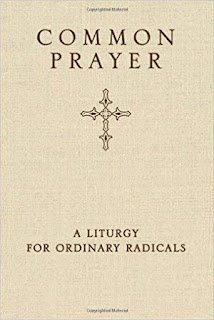The Daily Lectionary
FRIDAY, July 24, 2020
Psalm 105:1-11, 45b; Genesis 29:9-14; Acts 7:44-53
(Revised Common Lectionary Year A)
Give thanks to God
1 Give praise to the Lord, proclaim his name;
make known among the nations what he has done.
2 Sing to him, sing praise to him;
tell of all his wonderful acts.
3 Glory in his holy name;
let the hearts of those who seek the Lord rejoice.
4 Look to the Lord and his strength;
seek his face always.
5 Remember the wonders he has done,
his miracles, and the judgments he pronounced,
6 you his servants, the descendants of Abraham,
his chosen ones, the children of Jacob.
7 He is the Lord our God;
his judgments are in all the earth.
8 He remembers his covenant forever,
the promise he made, for a thousand generations,
9 the covenant he made with Abraham,
the oath he swore to Isaac.
10 He confirmed it to Jacob as a decree,
to Israel as an everlasting covenant:
11 “To you I will give the land of Canaan
as the portion you will inherit.”
45b Praise the Lord.
Jacob meets Rachel’s family
29:9 While he was still talking with them, Rachel came with her father’s sheep, for she was a shepherd. 10 When Jacob saw Rachel daughter of his uncle Laban, and Laban’s sheep, he went over and rolled the stone away from the mouth of the well and watered his uncle’s sheep. 11 Then Jacob kissed Rachel and began to weep aloud. 12 He had told Rachel that he was a relative of her father and a son of Rebekah. So she ran and told her father.
13 As soon as Laban heard the news about Jacob, his sister’s son, he hurried to meet him. He embraced him and kissed him and brought him to his home, and there Jacob told him all these things. 14 Then Laban said to him, “You are my own flesh and blood.”
After Jacob had stayed with him for a whole month.
Solomon’s temple cannot contain God
7:44 “Our ancestors had the tabernacle of the covenant law with them in the wilderness. It had been made as God directed Moses, according to the pattern he had seen. 45 After receiving the tabernacle, our ancestors under Joshua brought it with them when they took the land from the nations God drove out before them. It remained in the land until the time of David, 46 who enjoyed God’s favor and asked that he might provide a dwelling place for the God of Jacob. 47 But it was Solomon who built a house for him.
48 “However, the Most High does not live in houses made by human hands. As the prophet says:
49 “‘Heaven is my throne,
and the earth is my footstool.
What kind of house will you build for me?
says the Lord.
Or where will my resting place be?
50 Has not my hand made all these things?’
51 “You stiff-necked people! Your hearts and ears are still uncircumcised. You are just like your ancestors: You always resist the Holy Spirit! 52 Was there ever a prophet your ancestors did not persecute? They even killed those who predicted the coming of the Righteous One. And now you have betrayed and murdered him— 53 you who have received the law that was given through angels but have not obeyed it.”
Optional parts of the readings are set off in [square brackets.]
The Bible texts of the Old Testament, Epistle, and Gospel lessons are from The Holy Bible, New International Version®, NIV® Copyright ©1973, 1978, 1984, 2011 by Biblica, Inc.® Used by permission. All rights reserved worldwide.
The Daily Lectionary is a three-year cyclical lectionary. We are currently in Year A. Beginning with the first Sunday of Advent in 2020, we will be in Year B. The year which ended at Advent 2019 was Year C. These readings complement the Sunday and festival readings: Thursday through Saturday readings help prepare the reader for the Sunday ahead; Monday through Wednesday readings help the reader reflect and digest what they heard in worship. Revised Common Lectionary Daily Readings, copyright © 2005 Consultation on Common Texts. www.commontexts.org
The Daily Lectionary for FRIDAY, July 24, 2020
Psalm 105:1-11, 45b; Genesis 29:9-14; Acts 7:44-53









